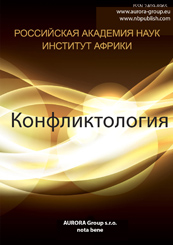Political conflicts in global politics and international relations
Reference:
Panov, D.S. (2025). From Expansion to Restriction: CIA Reforms under the Presidential Administrations of D. Eisenhower and J. Kennedy. Conflict Studies / nota bene, 2, 1–15. https://doi.org/10.7256/2454-0617.2025.2.73723
Read the article
First Peer Review:
Second Peer Review:
Third Peer Review:
|
EDN: IWRTRN

|
Abstract:
The object of the study is the functioning of national security agencies in American foreign policy during the administrations of D. Eisenhower and J. Kennedy (1950s – 1963). The subject of the study is changes in the activities and powers of the CIA in connection with the change in political courses of the two presidents. This work allows to understand the driving forces of modern events using the example of the past. The article examines the conflict in the "president-intelligence agencies" system, namely the relationship between the role and place of the CIA during the conservative administration of President D. Eisenhower and the liberal John Kennedy. Particular attention is paid to the Director of Intelligence Allen Dulles, who was one of the most significant figures in American foreign policy. The emphasis in the work is made on the expansion and reduction of powers, organizational reforms, their causes and covert operations that served as a catalyst for long-overdue changes. The study uses the historical-comparative method to analyze the approaches of the Eisenhower and Kennedy administrations, the historical-systemic method to study the role of the CIA in the context of foreign policy, and the analysis of documents (laws, directives, memoirs) to reconstruct events and identify cause-and-effect relationships. The nomothetic method reveals patterns between the work of intelligence agencies and political cycles. The study revealed contradictions in American national security in the mid-20th century, which lay in the "US President - intelligence agencies" system. In the 1950s and 1960s, the US intelligence agencies, especially the CIA, carried out large-scale activities due to the conservative political cycle and extensive powers. Particular attention in the study is paid to the Director of the CIA, who had a noticeable influence on foreign policy. The theoretical novelty of the work lies in the implementation of a synthesis of historical and political science approaches. Historical and archival analysis of primary documents made it possible to reconstruct the institutional mechanisms of the influence of intelligence agencies on the American foreign policy process. The political interpretation of the obtained data through the prism of the cyclical theory of A. Schlesinger Jr. revealed the influence of the change of cycles (conservatism/liberalism) on the dynamics of institutional interaction between the president and intelligence.
Keywords:
liberalism paradigm, realism paradigm, international relations theory, covert operations, CIA, Cold War, Allen Dulles, John Kennedy, Dwight Eisenhower, USA
 This work is licensed under a Creative Commons Attribution-NonCommercial 4.0 International License.
This work is licensed under a Creative Commons Attribution-NonCommercial 4.0 International License.
 Eng
Eng












 © 1998 – 2025 Nota Bene. Publishing Technologies. NB-Media Ltd.
© 1998 – 2025 Nota Bene. Publishing Technologies. NB-Media Ltd.




